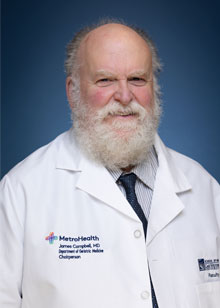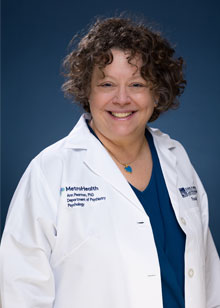Contributed by James W. Campbell, MD | Department Chair of Geriatric Medicine
Contributed by Ann M. Pearman, Ph.D.| Department of Psychology
We’ve come to accept mental health issues as a natural part of growing old. Common problems like anxiety, insomnia, depression, and dementia are often overlooked or attributed to aging. These conditions are treatable.
Symptoms begin gradually and are easy to miss, but there are subtle warning signs alerting you that something is off.
With depression, for example, you or your loved one might experience:
- Lack of interest or joy in favorite activities
- Difficulty concentrating
- Feeling tired
These signs are easily overlooked or dismissed as we age.
Generational beliefs that mental health issues are a sign of weakness or personal failure often keep people from seeking help. This is especially true for senior citizens.
“Please do not write off changes in mood or energy as a symptom of old age,” said Ann M. Pearman, Ph.D. “We want our older patients to know that you are not alone and that it’s never too late to take charge of your mental health.”
Treatment Options
The good news is that mental health conditions are treatable. Common treatments include:
- Talk therapy, which uses discussion, listening and counseling to help people work through and manage symptoms,
- Cognitive Behavioral Therapy, or CBT, which encourages people to recognize and change patterns of thoughts and behaviors to improve overall health, and
- Medication, which treats the physical and chemical causes of mental health symptoms.
These treatments do not have to be difficult or time-consuming. While consulting with a specialist may be necessary to start a treatment plan, common mental health issues can be treated during primary care visits.
How Loved Ones Can Help
If you are concerned with your elder loved ones’ mental health, encourage them to discuss their symptoms with their primary care provider. Remind them that mental health and physical health are equally important to quality of life.
“Watch for nonspecific symptoms in older people,” said James Campbell, MD, Chair of Senior Health at MetroHealth. “Functional decline, increasing isolation, losing weight, not sleeping — all are signs that it’s time to check in with a medical provider.”

















